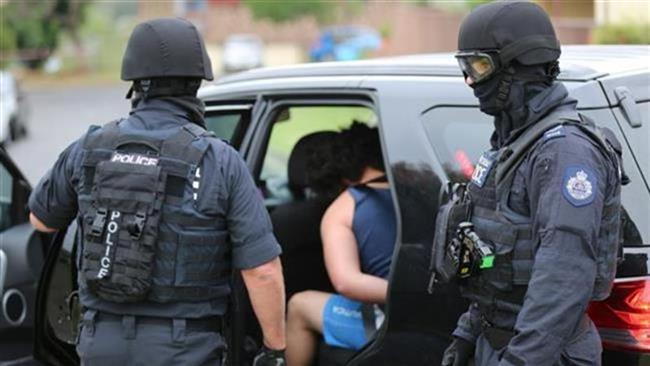
RNA - Security forces arrested a 29-year-old male resident of Melbourne late on Saturday, who was charged along with two other men, aged 25 and 27, who had already been in custody and awaiting trial on suspicion of planning bomb attacks in Australia’s second largest city.
Police said all three had been charged with engaging in a “terrorist act” by causing two serious fires at the Imam Ali Islamic Center at Fawkner, a Melbourne suburb, in November and December 2016.
Australian Federal Police Assistant Commissioner Ian McCartney said attacking a place of worship was a serious crime and that there had been a “strong influence” on the attackers by the Daesh terrorist group.
“It is clear that these arson attacks were designed to intimidate and influence those that attend this mosque and the wider Islamic community. These actions have no place in our society,” McCartney said.
Ross Guenther, Victoria’s police assistant commissioner, also said in a statement that the trio had been “inspired” and “strongly influenced” by Daesh to commit the arson attacks, but asserted that there was no evidence to conclude they were directly ordered to do so by the terrorist group.
All the three man will face a maximum penalty of life imprisonment over the attacks if convicted.
Australia is concerned about the threat of attacks in the country as nationals who had joined terror groups in the Middle East return home.
In late March 2017, Australia’s Foreign Minister Julie Bishop said that hundreds of militants from Southeast Asia had been in the Middle East fighting for Daesh and could soon return to the region as the Takfiri group loses more territory to security forces fighting to take back land overrun by the outfit.
Daesh, which first emerged in the Middle East and later spread its activities to North Africa and Afghanistan, has been suffering heavy losses in Iraq and Syria, the two countries where it has been significantly active.
The Australian government has ratified a law criminalizing travel to Daesh strongholds, including those in Syria and Iraq. Individuals charged with the crime could face up to 10 years in prison.
847/940